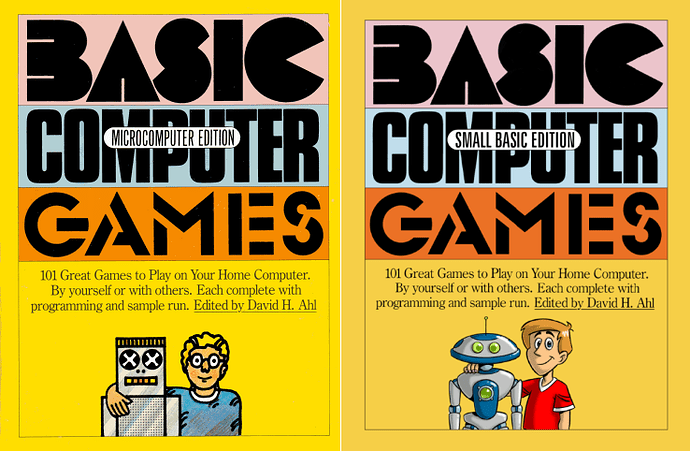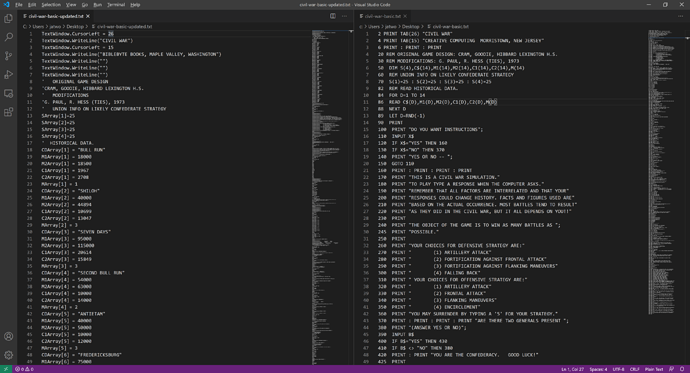There was a 40th anniversary edition of Basic Computer Games, which apparently was updated to use Microsoft Small Basic?
They even updated the cover ![]()
Here’s an updated classic game from the book:
Civil War was written in 1968 by three Students at Lexington High School, Massachusetts: L Cram, L. Goodie, and D. Hibbard. It was modified into a 2-player game by G. Paul and R. Hess of TIES, St. Paul, Minnesota. It was ported to Microsoft Small Basic by BIBLEBYTE BOOKS in 2010.
On the left, the updated 2010 version, on the right, the 1973 original:
I have to say the rewrite is .. kinda worse.. than the original? Judge for yourself:
As I guessed, MS Small Basic is basically a re-skinned vb.net?
As you’d expect, most of it is public on GitHub.

